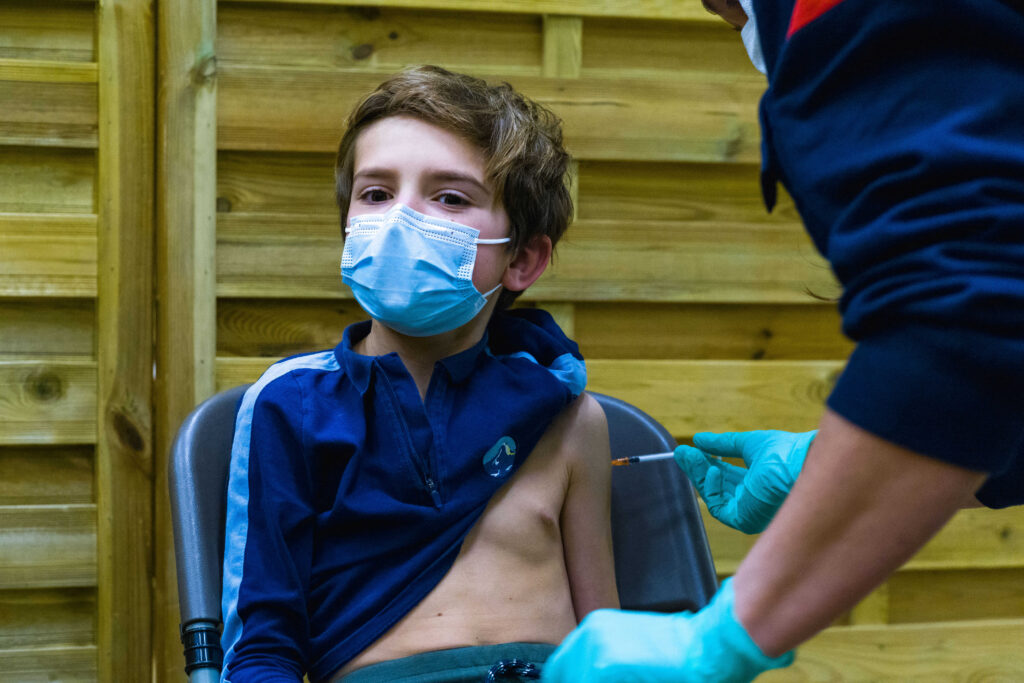This year saw a sharp increase in measles cases across Europe with the number of infections in Belgium rising from 8 in 2022 to 52 in 2023.
Cases in Europe have shot up thirty-fold, from 941 in 2022 to 30,000 in 2023. 20,918 of these cases were hospitalised and there were five measles-related deaths.
Belgium, along with Austria, France and Germany, is experiencing clusters of infections rather than a full-blown epidemic. In Sint-Niklaas (East Flanders), two families were at the centre of one cluster which resulted in at least 15 infections. Five of these cases – including children – were hospitalised and one adult who developed meningitis ended up in intensive care.
There have been several medium-sized clusters in Brussels-Capital Region, including one outbreak at an asylum centre.
The majority of people in Belgium who contracted measles were not vaccinated or had only received one of the two necessary doses. Infectious disease control doctor Heidi Theeten told De Standaard that dropping vaccination rates might be due to relaxed attitudes rather than severe anti-vax sentiment.
"In Sint-Niklaas, it was not antivaxxers who got measles first," says Theeten, who monitored the cluster. "The children who contracted the virus at school were also found to be missing their vaccinations due to parental negligence."
Why the surge?
The World Health Organisation (WHO) estimates that more than 1.8 million children missed their measles shot between 2020 and 2022. The organisation says urgent measures must be taken to address the current rise in measles cases by preventing further backsliding in vaccination rates. Immunisation has been on the decline since the Covid-19 pandemic owing to the disruptions caused by lockdowns.
To prevent outbreaks, countries must achieve and maintain over 95% population coverage with two doses of measles-containing vaccine. As it stands, national coverage in Europe decreased from 96% in 2019 to 93% in 2022 concerning the first dose, and from 92% in 2019 to 91% in 2022 concerning the second dose.
The WHO also highlights health barriers which have been lifted and the resumption of international travel since the pandemic as an explanation for the recent surge in measles cases.
Second epidemic in ten years
Romania declared a measles epidemic in December after over 2,000 cases were reported in 2023. A child less than one year old died of the disease, prompting the government to begin vaccinating children aged nine months.
Over 80% of children in Romania who contracted the disease were unvaccinated. According to the Ministry of Health, "the national vaccination coverage stands at 78% for the first dose and 62% for the second dose, with a declining trend over the past decade".
This is the second time the country has declared a measles epidemic in less than 10 years. The first was declared in September 2016. It lasted until November 2019 and resulted in 18,711 infections and 64 deaths.
Related News
- Nearly 40 million children susceptible to measles after vaccination disruptions
- Critical need to clear backlog of regular childhood vaccinations in Belgium
- Measles on the rise in Belgium and across Europe
According to the WHO, three main strategies help eradicate measles: high population immunity, the closure of immunity gaps in the population, and the effective monitoring of cases so that public action can be taken.
"Urgent vaccination efforts are needed to halt transmission and prevent further spread," says Dr Hans Henri P. Kluge, WHO Regional Director for Europe. "It is vital that all countries are prepared to rapidly detect and timely respond to measles outbreaks, which could endanger progress towards measles elimination."

